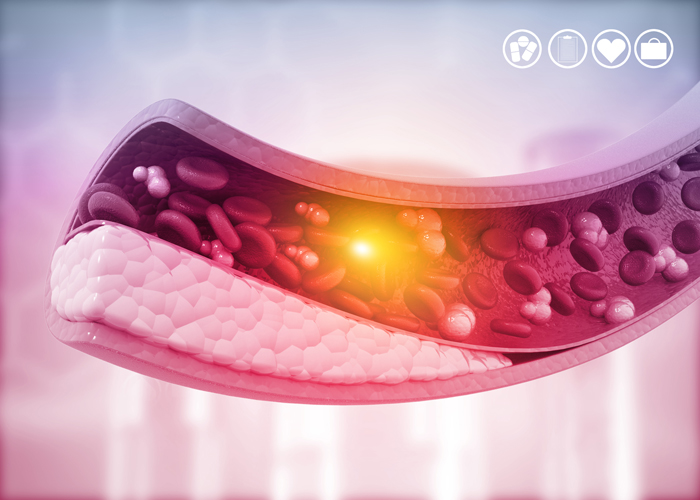Treatment for Thrombosis in MRC Nagar, Chennai
What are Deep Vein Occlusions?
A deep vein occlusion is the blockage of a blood vessel in your deep veins. A deep vein occlusion is different from deep vein thrombosis because a deep vein occlusion is any blockage and not just caused by a blood clot like a thrombosis. However, when occlusions occur in the deep veins, they might lead to deep vein thrombosis. Therefore, if you notice any symptoms of deep vein occlusion, you should immediately visit a deep vein occlusions hospital near you.
Deep vein occlusions occur when there is a severe blockage in a vein deep inside your body. It is mostly caused by a blood clot, especially in your thighs or lower legs. But deep vein occlusions can also occur in other parts of your body. Deep vein occlusions can be life-threatening, and therefore you should consult a deep vein occlusions specialist in MRC Nagar if you have pain, swelling, or tenderness, especially in your legs. People who lead a sedentary life are especially at risk of developing deep vein occlusions.

What are the Symptoms of Deep Vein Occlusions?
The common symptoms of deep vein occlusions are -
- Cramping pain that begins in the calf of your legs
- Excessive pain in the affected foot and ankle
- Excessive swelling in the affected foot and ankle
- The skin over the affected area feels warmer than the other surrounding areas
- The skin over the affected area changes color and becomes reddish or bluish
If you have deep vein occlusion in your arms, you will experience the following symptoms:
- Neck pain
- Shoulder pain
- Weakness in your affected hand
- Swelling in the affected arm or hand
- Skin color changes to tinted blue
A deep vein occlusion becomes life-threatening when the blockage or blood clot moves from the arm or leg to the lungs. It leads to pulmonary embolism, where an artery in your lung becomes blocked. Pulmonary embolism requires immediate treatment in a deep vein occlusions hospital in MRC Nagar.
What Causes Deep Vein Occlusions?
A blockage in the veins causes deep vein occlusions. The blockage or blood clot prevents the proper flow of blood. Deep vein occlusion might occur because of several reasons:
- Damage to a blood vessel because of injury might block blood flow resulting in occlusions.
- During surgery, your blood vessels might be damaged, leading to blood clots.
- If you lead a sedentary life or sit for long periods, it leads to a collection of blood in your lower legs. When your blood flow slows down, it can lead to deep vein occlusions.
- Certain medications might form blood clots leading to deep vein occlusions.
When Do You Need to Visit a Doctor?
You should visit a doctor if you notice any of the symptoms of deep vein occlusions. Deep vein occlusion can lead to life-threatening pulmonary embolism. Therefore, prompt treatment is necessary.
Request an appointment at
Apollo Spectra Hospitals, MRC Nagar, Chennai
Call 1860 500 2244 to book an appointment
How are Deep Vein Occlusions Treated?
Treatment of deep vein occlusion includes medicines and compression stockings. Deep vein occlusion treatment includes the prevention of the further growth of the blockage. Timely treatment helps prevent pulmonary embolism and reduces the risk of further clots. The treatment for deep vein occlusion includes:
Medicines: Deep vein occlusions doctors in MRC Nagar prescribe medicines like heparin, enoxaparin, and warfarin to thin your blood.
Compression stockings: Compression stockings help control swelling from deep vein occlusions. Your doctor will advise you to wear your compression stockings every day.
Filters: If blood thinners do not work, your doctors will put a filter inside the vena cava. Filters prevent pulmonary embolism because they stop the clot from entering your lungs. But if filters are left in the veins for long periods, they might lead to deep vein thrombosis.
Surgery: If medicines do not work, your doctor might suggest surgery. A deep vein occlusions specialist near you will recommend surgery only when the clots are very large. In a surgical thrombectomy, your doctor will cut the vein and remove the blood clot.
Exercise: The risk of developing deep vein occlusions increases with elongated periods of sitting down. Therefore, your doctor would suggest knee pulls, foot pumps, and ankle circles for better blood circulation.
Conclusion
Timely treatment can help you prevent deep vein occlusions. Exercise and active life can prevent deep vein occlusions. In addition, you should control diseases like high blood pressure and diabetes to prevent deep vein occlusions from taking a serious turn.
If left untreated, deep vein occlusion can lead to pulmonary embolism.
Yes, walking is good for deep vein occlusions because it improves blood circulation.
People who lead a sedentary lifestyle are at risk of developing deep vein occlusions.
Symptoms
Our Doctors
DR. BALAKUMAR S
MBBS,MS, MCh...
| Experience | : | 21 Yeras Experience |
|---|---|---|
| Speciality | : | Vascular Surgery... | Location | : | Alwarpet |
| Timings | : | Available by prior a... |
DR RAJAH V KOPPALA
MBBS, MD, FRCR (UK)...
| Experience | : | 23 Yeras Experience |
|---|---|---|
| Speciality | : | Vascular Surgery... | Location | : | Alwarpet |
| Timings | : | Mon - Sat | 11:00a... |
DR. BALAKUMAR S
MBBS,MS, MCh...
| Experience | : | 21 Yeras Experience |
|---|---|---|
| Speciality | : | Vascular Surgery... | Location | : | MRC Nagar |
| Timings | : | Mon - Sat : 4:30 PM ... |
Our Top Specialities
NOTICE BOARD
CONTACT US
CONTACT US
 Book Appointment
Book Appointment





.svg)
.svg)
.svg)
.svg)








